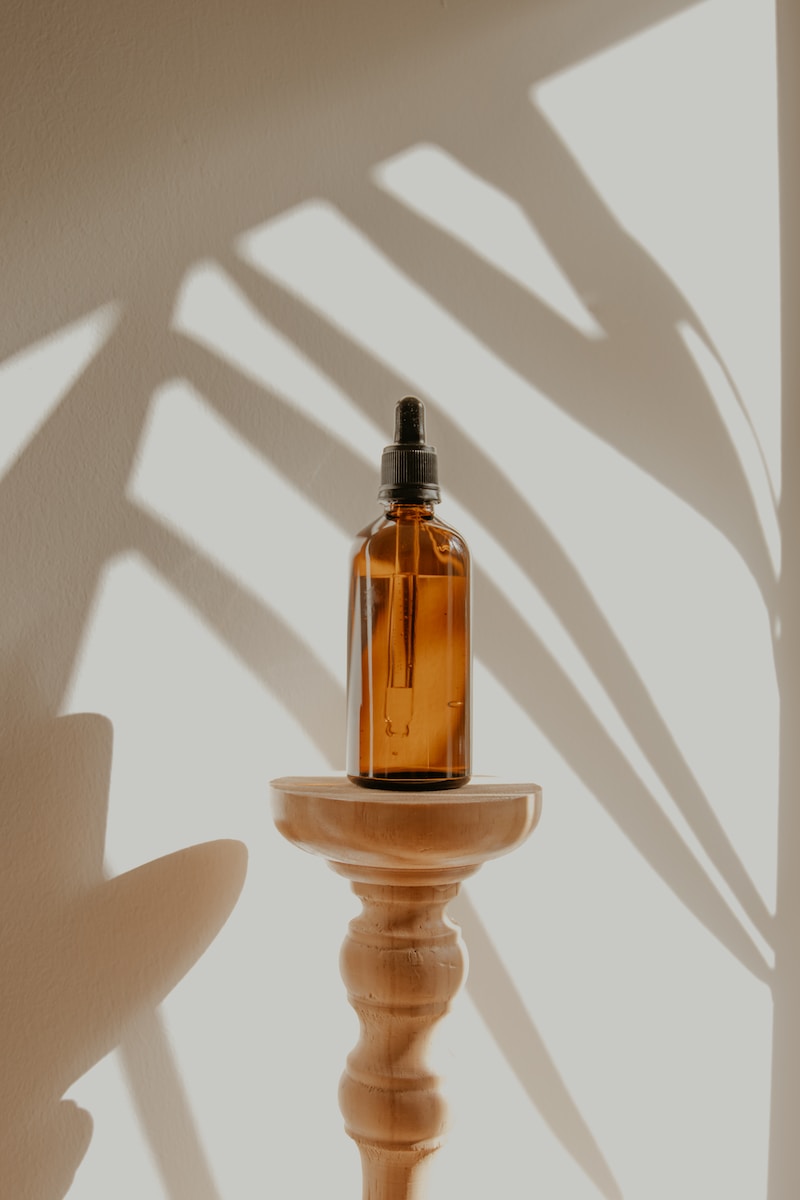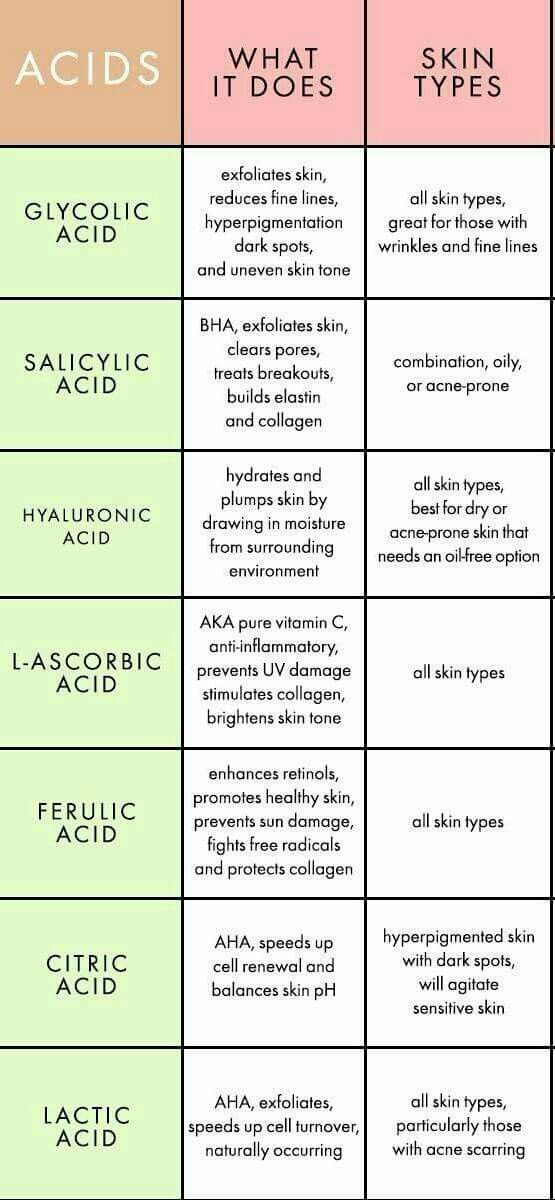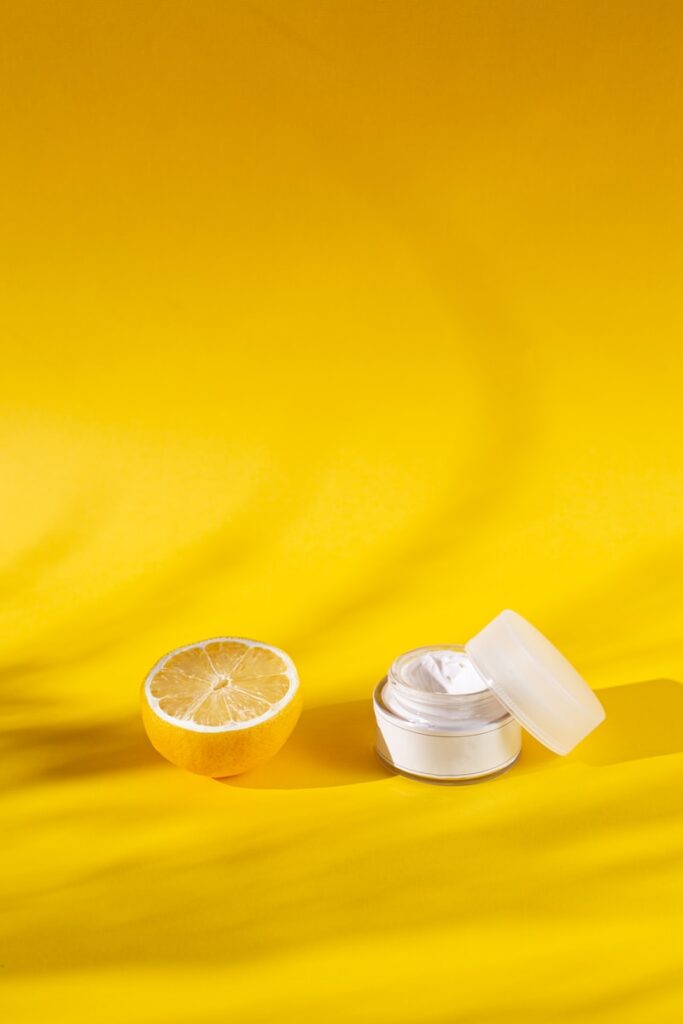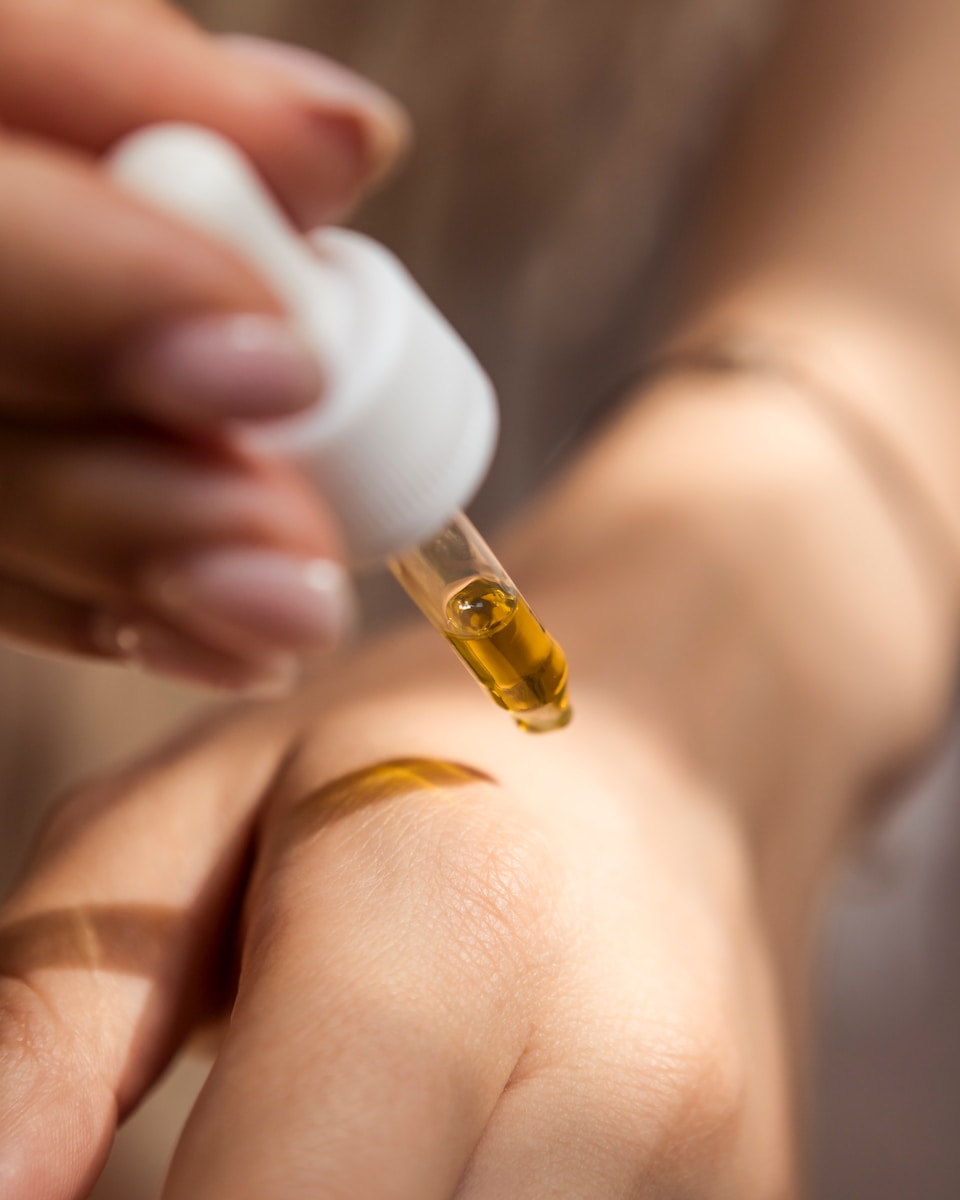
The Ultimate Guide To Skin Acids: Which One is Right For You?
Do you want glowing, healthy-looking skin? Have you heard about skin acids but aren’t sure which one is right for you? Skin acids can be incredibly beneficial in helping to achieve a clear and even complexion. In this blog post, we’ll be breaking down the seven most popular skin acids: Glycolic, Ferulic, Lactic, Salicylic, Hyaluronic, L-Ascorbic, and Citric. By exploring the unique benefits of each of these acids, you’ll be able to decide which one is best for your skincare routine.
Understanding Skin Acids: What Are They and How Do They Work?
Skin acids are known for their ability to effectively treat various skin concerns. They are chemical compounds that work by exfoliating the skin, promoting cell turnover, and improving the overall appearance and texture of the skin.

Here are some key points to understand about skin acids and how they work:
- What do skin acids do? Skin acids work by breaking down the bonds that hold dead skin cells together, resulting in a gentle exfoliation. This process helps to remove dull and dead skin cells, revealing a brighter and smoother complexion.
- Skin acids for anti-aging: Some skin acids, such as glycolic acid and lactic acid, are effective in reducing the signs of aging. They can help to diminish the appearance of fine lines and wrinkles, stimulate collagen production, and improve skin elasticity.
- Skin acids for acne: Salicylic acid is a popular choice for acne-prone skin as it penetrates deep into the pores, unclogging them and reducing the formation of new breakouts. It also has anti-inflammatory properties that help calm irritated skin.
- How to use skin acids: It is important to follow the instructions and recommendations on the product packaging when using skin acids. Start by using them once or twice a week and gradually increase the frequency if tolerated well. Always use a sunscreen during the day when using skin acids, as they can make the skin more sensitive to the sun.
Glycolic Acid: Benefits, Uses, and Side Effects
Glycolic acid is a type of alpha-hydroxy acid (AHA) that is derived from sugar cane. It is one of the most commonly used AHAs in skincare products due to its ability to penetrate deeply into the skin and exfoliate dead skin cells, leading to a brighter, smoother complexion.
- Glycolic acid can help reduce the appearance of fine lines and wrinkles by stimulating collagen production.
- It can also improve skin texture and tone, minimizing the look of pores and reducing hyperpigmentation.
- Glycolic acid can also help clear up acne-prone skin by removing excess oil and unclogging pores.
- It can also be found in at-home peels or in-office treatments, such as chemical peels, to provide a deeper exfoliation.
- Glycolic acid can also be found in anti-aging creams, to help reduce the appearance of fine lines and wrinkles.
Important Safety Precautions for Glycolic Acids:
- Overuse of glycolic acid can lead to dryness, redness, and irritation.
- Those with sensitive skin may need to use a lower concentration of glycolic acid to avoid irritation.
- Sun sensitivity can also occur when using glycolic acid, so it’s important to use sunscreen regularly when incorporating it into your skincare routine.
Ferulic Acid: The New Anti-Aging Superstar?
- Ferulic acid is a powerful antioxidant that helps to protect the skin against free radical damage caused by sun exposure and pollution.
- It has been shown to enhance the stability and effectiveness of other antioxidants, such as vitamins C and E.
- Research has found that ferulic acid can help to reduce the appearance of fine lines and wrinkles, as well as improve overall skin tone and texture. Read the research here.
- It also has anti-inflammatory properties, making it beneficial for those with sensitive or reactive skin.
- Ferulic acid can be found in skincare products, particularly in combination with vitamin C, as it helps to enhance the stability and effectiveness of the vitamin.
- When used in conjunction with other antioxidants, such as vitamin E, ferulic acid can provide even greater protection against oxidative stress.
- It is generally well-tolerated by most skin types, but it is always recommended to patch test new products before incorporating them into your skincare routine.
- Overall, ferulic acid is a powerful ingredient that can help to combat the signs of aging and protect the skin against environmental damage.
Lactic Acid: A Gentle Exfoliant for Sensitive Skin
Lactic acid is a popular alpha-hydroxy acid (AHA) derived from milk that has become a go-to for those with sensitive skin. Here are some things to know about this gentle exfoliant:
- Benefits: Lactic acid is a natural humectant, meaning it can draw moisture to the skin. It helps to exfoliate dead skin cells and improve the texture of the skin, while also brightening and evening out skin tone.
- Uses: Lactic acid can be found in a range of skincare products, including toners, serums, and peels. It is a great option for those with dry, sensitive, or acne-prone skin, as it is gentle and non-irritating.
- Side effects: While lactic acid is generally considered safe for most skin types, it is important to patch test before use, as some individuals may experience irritation or redness. Overuse can also lead to over-exfoliation and a compromised skin barrier.
- Dosage: The percentage of lactic acid used in skincare products can range from 5-30%. It is best to start with a lower percentage and gradually work up to avoid irritation.
- Other benefits: Lactic acid can also help to improve the appearance of fine lines and wrinkles and boost collagen production over time.
- Overall, lactic acid is a great option for those with sensitive skin looking for a gentle exfoliant to improve skin texture and tone.
Salicylic Acid: A Miracle Ingredient for Acne-Prone Skin
- Salicylic acid is a beta-hydroxy acid that is known for its ability to exfoliate the skin and unclog pores.
- It is oil-soluble, which allows it to penetrate deep into the pores and break down the buildup of dead skin cells and oil that can lead to acne.
- Salicylic acid also has anti-inflammatory properties, making it effective in reducing redness and swelling associated with acne.
- This powerful ingredient can help to prevent new breakouts and promote faster healing of existing blemishes.
- It is important to note that salicylic acid can be drying and may cause some mild irritation, especially for those with sensitive skin.
- It is best to start with a lower concentration of salicylic acid and gradually increase if needed.
- Salicylic acid can be found in a variety of skincare products, such as cleansers, toners, serums, and spot treatments.
- It is often recommended for oily and acne-prone skin types, but can be beneficial for all skin types when used appropriately.
- When using salicylic acid, it is important to follow the instructions on the product and to always wear sunscreen, as it can increase sensitivity to the sun.
- Overall, salicylic acid is a miracle ingredient for those with acne-prone skin, as it can effectively unclog pores and prevent breakouts, resulting in clearer and healthier skin.
Hyaluronic Acid: The Ultimate Moisturizer for All Skin Types
- Hyaluronic acid is a natural substance that is already present in our bodies, specifically in our skin and connective tissues.
- It has the amazing ability to retain moisture, making it an excellent hydrating ingredient for all skin types.
- This acid can hold up to 1000 times its weight in water, resulting in plump, hydrated skin that appears more youthful and radiant.
- It works by drawing moisture from the environment into the skin and preventing moisture loss.
- Hyaluronic acid is also a humectant, meaning it can attract and bind water molecules to the skin’s surface, keeping it hydrated throughout the day.
- It has a lightweight, gel-like consistency that makes it suitable for both oily and dry skin types.
- This acid can also help improve the appearance of fine lines and wrinkles by providing the skin with essential hydration.
- It is a safe and gentle ingredient that rarely causes irritation or adverse reactions, making it suitable for even the most sensitive skin.
- Hyaluronic acid can be found in various skincare products, including serums, moisturizers, and masks.
- To incorporate hyaluronic acid into your skincare routine, apply a hyaluronic acid serum or moisturizer onto clean, damp skin before sealing it in with a moisturizer.
L-Ascorbic Acid: The Powerhouse Vitamin C for Brighter, Firmer Skin
- L-Ascorbic acid, also known as Vitamin C, is a powerful antioxidant that can work wonders for your skin.
- This skin acid helps to brighten the skin, reduce the appearance of fine lines and wrinkles, and improve overall skin texture.
- It is also known for its ability to stimulate collagen production, which can help to firm and tighten the skin.
- L-Ascorbic acid is particularly effective at reducing hyperpigmentation and dark spots, making it a popular choice for those struggling with uneven skin tone.
- When applied topically, L-Ascorbic acid can also protect the skin from free radicals and environmental damage.
- It is important to note that L-Ascorbic acid can be quite unstable and can easily oxidize, so it is best to look for products that are packaged in opaque containers to ensure the potency of the ingredient.
- To incorporate L-Ascorbic acid into your skincare routine, consider using a vitamin C serum or moisturizer. These products are typically applied after cleansing and toning and can be used daily or a few times a week, depending on your skin’s tolerance.
- Remember to always wear sunscreen when using L-Ascorbic acid, as it can increase the skin’s sensitivity to the sun.
- Overall, L-Ascorbic acid is a must-have ingredient for anyone looking to achieve brighter, firmer, and more youthful-looking skin.

How to Incorporate Skin Acids Into Your Skincare Routine: Dos and Don’ts
Using skin acids can be an effective way to improve the texture, clarity, and overall health of your skin. However, it’s important to use them correctly to avoid damaging your skin.
Here are some dos and don’ts for incorporating skin acids into your skincare routine:
- Start slowly: Introduce one acid at a time and start with a low concentration to avoid irritation.
- Patch test: Apply a small amount of the acid to a patch of skin and wait 24 hours to check for any adverse reactions.
- Follow instructions: Always follow the manufacturer’s instructions and use the acid as directed.
- Use sunscreen: Many acids can make your skin more sensitive to the sun, so it’s important to wear sunscreen every day to protect your skin.
- Moisturize: Using an acid can sometimes dry out your skin, so be sure to moisturize after applying the acid.
- Over-exfoliate: Using acids too frequently or using multiple acids at once can damage your skin’s barrier function and lead to dryness and irritation.
- Mix acids: Using multiple acids at once can cause skin irritation and make it difficult to determine which acid is causing any adverse reactions.
- Use acids with certain other products: Avoid using acids with products containing retinoids, benzoyl peroxide, or vitamin C, as they can cause skin irritation.
- Use on broken skin: Avoid using acids on any broken or irritated skin, as this can cause further damage and delay healing.
- Remember to always listen to your skin and adjust your routine accordingly. If you experience any irritation or discomfort, stop using the acid and consult with a dermatologist. Proper use of skin acids can help you attain clear and radiant skin.
Sources/Research:
“Hyaluronic Acid: A Key Molecule in Skin Aging”
“Epidermal and dermal effects of topical Lactic Acid”
Related Posts:
“Skin Glycation Begins In Your 20’s: What It Is and What You Can Do About It”




















